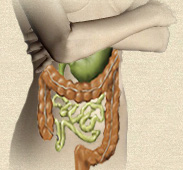The scientific literature says that IBS sufferer's are more likely than others to suffer from fear depression and more frequent "severe life events" These feelings often occurred prior to the onset of symptoms and so are not merely a result but a contributing factor to the condition. Here are some examples
Those with IBS have a higher incidence of emotional difficulties than those with other stomach conditions. And those emotional problems appear before the symptoms of IBS (p. 50) Those with IBS have more severe and more frequent "severe life events" and those too preceded the onset of the condition. (p. 50) -
Some symptoms occurred with feelings of anger or of intense pleasure in engaging with the environment (p. 52)
-
Other symptoms occurred with fear and depression or disengagement or withdrawal from the environment (p. 52)
Chronically constipated patients as a group are more anxious and more depressed than the general population (p. 54) Between 42% and 95% of those seen in GI clinics suffer from a diagnosable condition, usually anxiety or depression (p. 59) |

|
The scientific literature says that IBS patients are more effected by stress than the general population and often feel overwhelmed by stress. Here are some examples
There is an association of Panic Disorder with IBS symptoms (p. 56) Symptoms of IBS are made worse within a month of stressful life events (p. 56) These events are experienced as stressful as the level of stress in those patients who deliberately overdose (p. 56) |
|
The scientific literature says IBS patients are more likely to have experienced the trauma of sexual and physical abuse than the general population. Here are some examples
44% of those with GI disorders report physical or sexual abuse in childhood (p. 58) 31% reported rape or incest as compared with 18% of those with other illnesses (p. 58) In HMO settings 5.2% of those without IBS experienced incest or rape 22% of those with severe IBS reported that experience(p. 58)
|
The scientific literature says Panic attacks and considerable anxiety are more likely to accompany the symptoms of IBS and those are more prevalent in the IBS population than in the general population. Here are some examples
1/3 of patients presenting with Panic Disorder have IBS symptoms (p. 59) Between 42% and 95% of those seen in GI clinics suffer from a diagnosable condition, usually anxiety or depression (p. 59) There are often chronic concerns and beliefs that symptoms indicate cancer (p. 59)
|
The wish to present well in social situations, coupled with the illness provide the basis for both anxiety and depression. Here are some examples
IBS patients have been found to have high moral standards and high need for approval therefore are wary of negative stigma associated with psychological treatment of condition (p. 60) IBS patients have a higher need for social desirability and are therefore particularly frustrated by the disagreeable symptoms (p. 68)
|
|
The scientific literature says that the illness often presents with other debilitating physical/emotional conditions. For example:
|
* The information here is taken from " Psychological Aspects of the Functional Gastrointestinal Disorders" a review of over three hundred and fifty research papers in the field of gastrointestinal disorders
D.A. Drossman et al. Published in Gastroenterology International Vol. 8 No.2 p. 47-90 1995 The number in bracket beside each entry identifies the appropriate page of the article. The pages reflect pagination of the article. Journal pagination will be different .
|



© Mark Egit Ph.D. all rights reserved
|